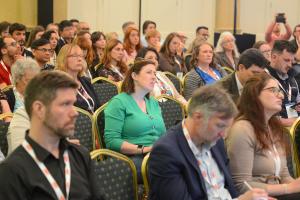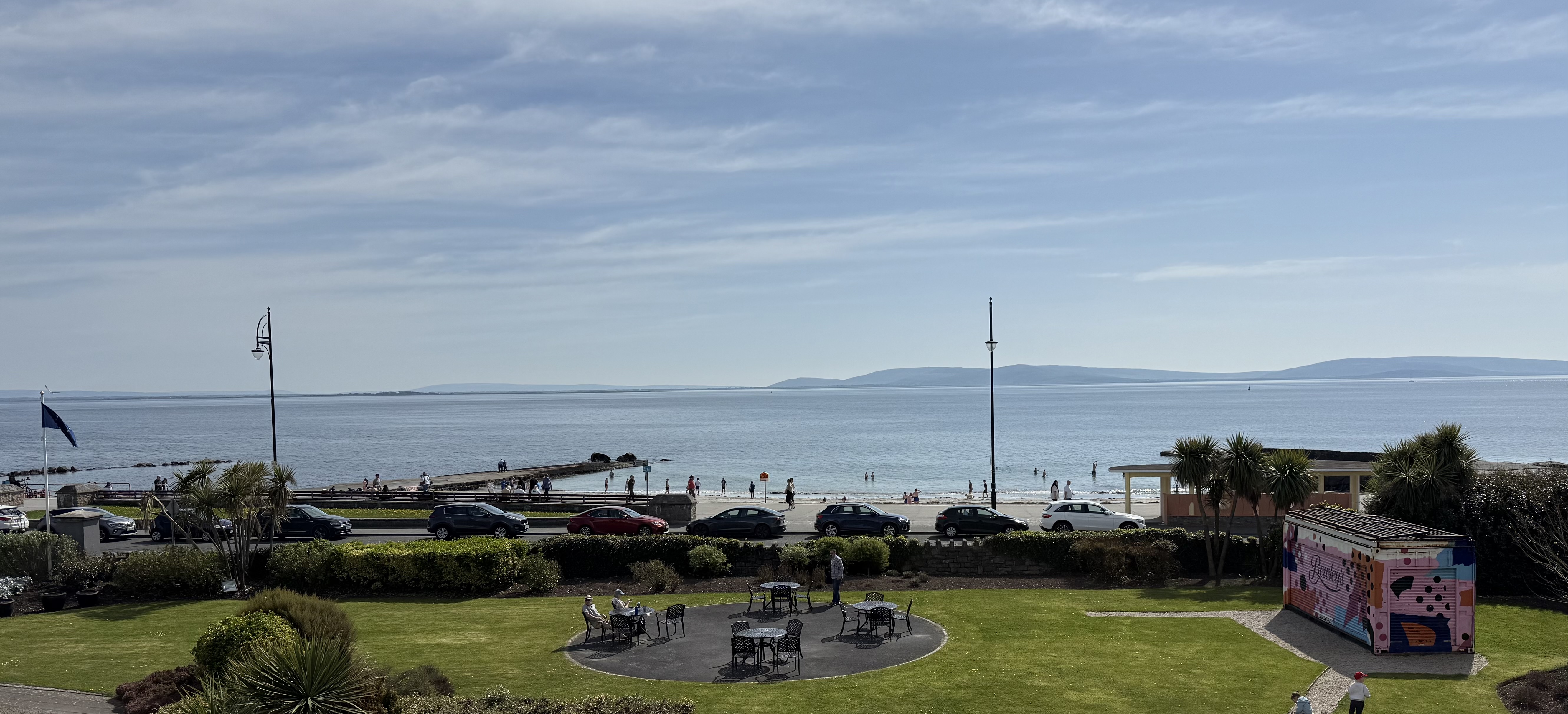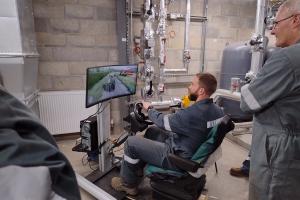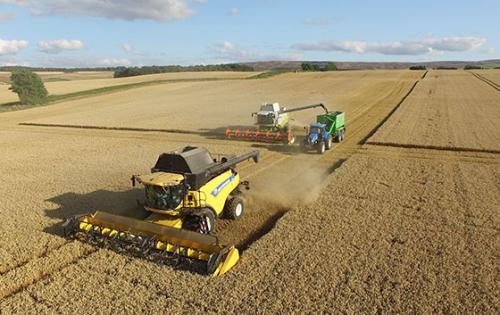
Scotland’s agriculture sector underpins Scotland’s high performing food and drink industry, is at the heart of our rural communities, and provides benefits to wider society. SEFARI provides the research needed for Scotland to improve the efficiency of good food production whilst protecting the environment, rural communities and animal welfare. This is done through developing tools (for example on disease control, welfare and genetics), research, and the capability to think about agriculture in a wider context. We also work with farmers and growers, processors, food companies, health professionals, nutritionists, and economists to find ways to put our research into practice.
Sector Contact

Case Studies
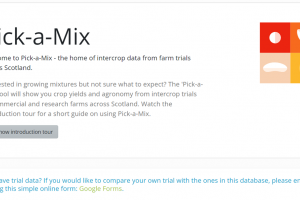
The way we currently produce food and other agricultural products is under threat from the changing climate, depleted biodiversity, and declining availability of natural resources used to boost productivity. We know that farming systems need to shift towards co-delivering for nature and net zero, but this needs to happen without compromising production and food security.
Farming faces huge challenges from these pressures, while coping with climate variability, degradation of prime agricultural land, and restrictions on pesticide use. In this blog, we try to help with what farmers can do in the short-term to address these multiple challenges.
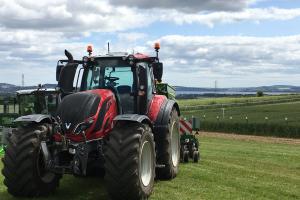
On the 4th of July Arable Scotland returns for the 5th year, a field event which is becoming a firm favourite in the calendar with everyone interested in food production. Farmers, producers, researchers and the policy community come together to discuss key issues such as innovative and sustainable farming.
SEFARI researchers and SEFARI Gateway colleagues will be joining in the conversations at Arable Scotland again. In this blog, find out more about which colleagues will be there and how our research is supporting the arable sector.
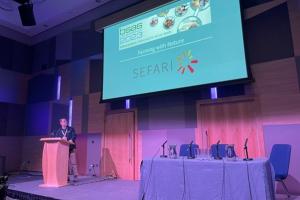
SEFARI Gateway was delighted to sponsor and host a session at the British Society of Animal Science (BSAS) Conference at the Birmingham International Conference Centre at the end of March. Its annual conference regularly attracts several hundred delegates, drawn from across academia and the livestock sector.
BSAS is a charity that ‘works to improve the understanding of all aspects of animal science and to ensure research and knowledge transfer has a practical and beneficial application’, so you can see the obvious parallel with SEFARI!
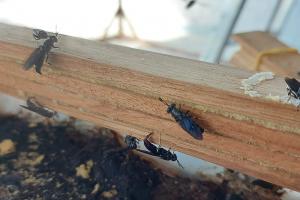
Scotland has the potential to become a global leader in the insect farming and industry, which could help with circular economy objectives, reducing food waste, and support the aquaculture, agriculture, and food and drink sectors. Equally, as there is an increasing demand for sustainable protein sources for animal feed in the country, insects could reduce our dependence on imported protein sources and create opportunities for local production.
In this blog, Pattanapong and Lorna discuss the current status of insect farming in Scotland, including the regulations and key challenges that impact the industry and draw upon insights from their project funded by the SEFARI Gateway Innovative Knowledge Exchange Fund.
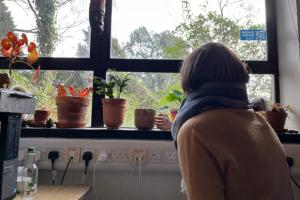
Delivering a sustainable food system is one of the key challenges of our generation and requires ambition to think beyond traditional production models. There is already no doubt we will need to produce our food in a more efficient and environmentally friendly way and my PhD project at the Rowett Institute (University of Aberdeen) is investigating the potential to scale-up production of climate resilient Scottish wild species in three novel agri-systems: forestry, vertical soil-based urban farming and pasture.
My research spans a number of topics, so as part of my PhD experience, and to broaden my understanding, I recently took part in the SEFARI PhD exchange program (funded by SEFARI Gateway) and visited colleagues at the Royal Botanic Garden Edinburgh (RBGE).
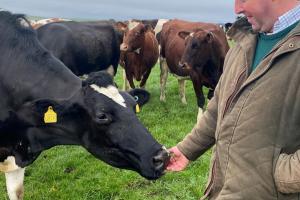
Fineview, a dairy farm managed by the Clark family in Dumfries and Galloway, is part of the innovative First Milk dairy cooperative which aims to deliver healthy fresh milk on sound environmental principles. Why not take a virtual tour and hear how delivering quality milk products needs a nurtured healthy soil, the encouragement of biodiversity, healthy cows and a sustainable farm enterprise.
This virtual tour is one of a series of SEFARI Gateway Innovative Knowledge Exchange funded tours designed to provide you with access to the many research facilities across Scotland whilst also giving you a taste of some of the work we do. Across SEFARI, world leading pioneering research is being undertaken that can really make a difference on the ground.
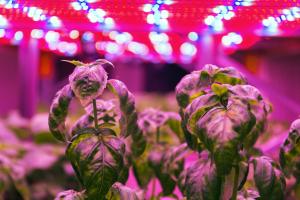
During COP26 the contribution of agriculture and food production to greenhouse gas emissions was discussed and, goals were set to tackle the global challenges of climate change. With COP27 taking place this November, it is becoming increasingly evident and more important than ever that we address sustainable practices on an individual and community level, as well as at the global level.
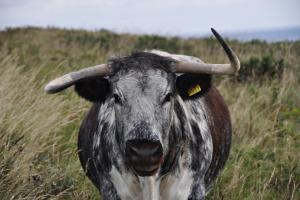
We are pleased to have a guest contribution from Dr Max Coleman, an ecologist and science communicator at Royal Botanic Garden Edinburgh, who is taking a wider look at beef production from an ecological perspective. Max has written this blog post as part of a new, multidisciplinary SEFARI Gateway funded Innovative Knowledge Exchange project aiming to identify the key messages for sustainable livestock production and to communicate these to farming and public audiences. (Image Credit: Longhorn cattle by Michael Golden CC BY 2.0.)
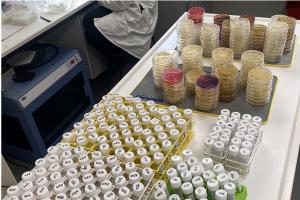
Antimicrobial resistance (AMR) is one of the biggest health-threats of modern time. A global survey in 2019 showed that it claimed more lives than HIV/AIDS or malaria, and AMR is one of the top 10 global public health threats facing humanity. Resistance to current drugs continues to emerge and grow, and there are insufficient new interventions on the horizon. This has left us in a precarious position, for which the World Health Organisation has developed a global strategy to help address the problem.
In this blog we explain how we have mapped out the research activities in Scotland related to AMR, providing a useful and needed overview of the type of ongoing AMR work and who is involved, and how, through SEFARI Gateway funding, we can develop this into an online resource.
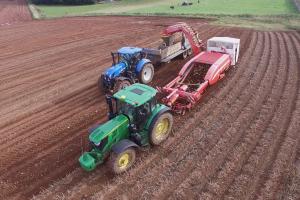
Agriculture and food production contribute a large portion of the greenhouse gas (GHG) emissions, account for approximately 20% of the world's total emissions. In Scotland, the picture is no different, where they contribute around a quarter of the total GHG emissions. Hence, it is important to address the transitions needed in these sectors in order to tackle climate change.
In this blog, Iasmim discusses a number of measures that have been recently proposed, or implemented, to help agriculture and food production to be more sustainable. A transition of practices needs to be just for everyone, and Iasmim considers both the opportunities and challenges ahead for this sector.
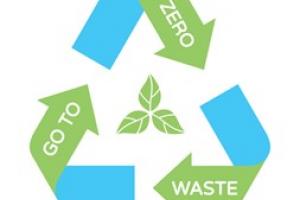
With growing pressures on food resources, agricultural inputs (e.g., energy, soil, water), production costs and the environment, many of us are looking at how we can reduce food wastage whilst still ensuring we get adequate nutrition.
In this blog. Madalina and Marietta - research fellows at the Rowett Institute, discuss work they’ve been doing to establish if broad bean hulls could be reused as food/food ingredients, in a bid to deliver circular nutrition (reusing food waste and providing needed dietary nutrients) as a zero-waste solution. It is hoped such approaches could contribute to a greener economy and a balanced diet simultaneously.
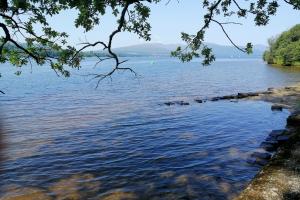
Water is a vital and essential part of our lives, but the impact of climate change is leading to there being too much water in some places and too little in others. This presents challenges that will require sustainable solutions, tailored to not only the issue but also the locality. Consequently, it is important we understand the many and varied benefits of water as a resource, and how we can tackle the issues we face now, and in the future.
Ahead of World Water Day, and as part of other planned activities, we are delighted to announce the publication of a series of educational posters, designed to promote discussion, on four important water topics: ‘The Hydrological Cycle’, ‘Water and Farming in Scotland’, ‘Water and Climate Change in Scotland’ and ‘Water and Global Climate Change’.
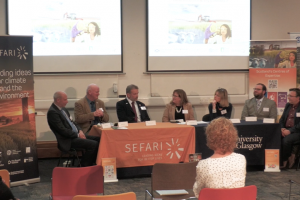
The climate emergency affects every part of our lives and collaboration within and across sectors is therefore key to addressing this crisis. With collaboration at their core, Scotland’s five Centres of Expertise (CoE) work together to connect research with, and respond to, policy needs across issues which affect the climate, water, animal and plant health, land and communities.
In this blog, you can learn more about the work of the CoEs - namely Centre of Expertise for Waters (CREW), ClimateXChange (CXC), Epidemiology, Population health and Infectious disease Control (EPIC), Plant Health Centre (PHC) and SEFARI Gateway - and how during COP26 they came together to host a series of events at the University of Glasgow to showcase how they are helping to protect people and the environment from the effects of climate change.
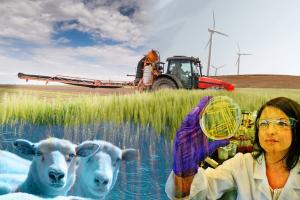
Even though COP26 is now over, there is still a strong focus on initiatives being taken by countries to address climate change. Scotland is committed to reaching net zero by 2045 and to delivering leadership and collaboration within the global response to tackling climate change.
In this blog, Lorna highlights her work in the creation of new resources which outline what is going on across the Centres of Expertise (CoE) to inform and support policy for climate action. Collation of this material from across the Centres was funded by SEFARI Gateway.
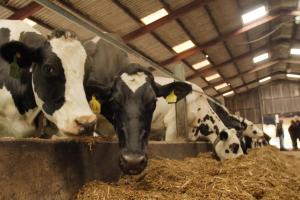
COP26, the United Nations Climate Change conference held in Glasgow, ended on Saturday the 13th of November. Since then, there has been a lot of stock taking as to what was achieved under the Glasgow Climate Pact. Several gains emerged in the first week of the conference, with the announcement of collective action on deforestation, coal, finance and methane. It is the latter of these, the Global Methane Pledge (GMP), which could provide immediate gains to limiting global warming to 1.5 degrees, as embedded in the Paris Agreement. In this blog article, we explain why cutting methane emissions is an imperative and provide examples of how Scottish Government funded science is helping farmers and food consumers reduce their emissions.
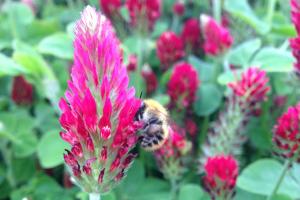
Scotland’s pollinators are a vital part of the country’s biodiversity and crucial for agricultural productivity. Globally, 75% the world’s crops rely on animal pollinators and these crops account for 35% of global food production. In light of the global climate change conference (COP26) and the UN Biodiversity Conference (COP 15) held this year, we should also look at the importance of pollinators for agriculture, and how correctly managed agricultural systems can benefit the environment, rural farmers, and the world’s food supply.
In this blog, we highlight SEFARI research on the positive benefits that pollinators and legume crops have on each other, and how diversifying the agricultural landscape may be the key to pollinator survival and agricultural sustainability.
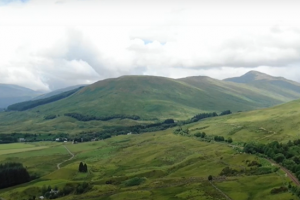
With the UN Climate Change Conference (COP26) underway, there is a spotlight on initiatives being taken by countries to address climate change. Do you want to know what Scotland is doing about it? Then join us on a virtual tour of some of SEFARI’s fascinating climate research.
From exploring windy Aberdeen Bay to visiting Scotland’s marshy peatlands, the tours offer a behind the scenes look at some of our innovative research which is seeking to help Scotland address and adapt to the climate crises. What’s more, you can enjoy the experience from the comfort of your own sofa and at your own pace.
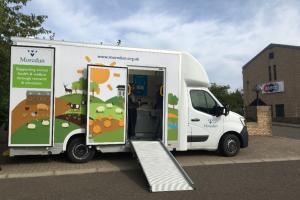
In September, colleagues from the Moredun Research Institute, SEFARI Gateway, the Food and Drink Federation Scotland (FDF Scotland), Royal Highland Educational Trust (RHET) and Quality Meat Scotland (QMS) outlined a wealth of educational resources that cover the sustainability of key resources such as food, water, and energy. A key priority for the younger generation especially with COP26 on the horizon, and on our doorstep!
By joining forces at a continuing professional development (CPD) event, organised by the Scottish Schools Education Resources Centre (SSERC), our session was designed to support teachers with the delivery of National 4, 5 and Higher Environmental Science. The session ended by moving outside of the classroom to see the new mobile laboratory and education bus, created as part of Moredun’s centenary, which is being used to visit schools and engage children with different science topics. Seeing the bus gave us the opportunity to extend discussions in a more relaxed environment out in the autumn sunshine.
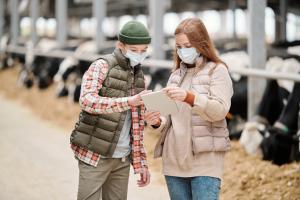
In this blog, we investigate how farmers interact on the online platform Twitter, with the aim of helping scientists to better facilitate mutual learning and support good farm practice.
Online spaces offer the advantage of promoting open discussions with a large amount of people in real time. However, as almost anyone can use and participate in these discussions that can sometimes create issues around the credibility, accuracy and useability of the information shared. Our aim is to better understand how to help individual farmers to find and share accurate and practical information from trusted sources.
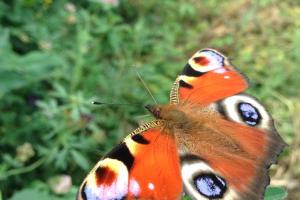
The farming community are under pressure to not only produce more food and remain profitable but also for their practices to be more sustainable. Despite these pressures, the farming community is experimenting, adapting and sharing their findings. In this blog, Dr Lorna Cole, SRUC, discusses a series of online Think Tanks capturing the wide variety of practices that farmers are trialling, and to share ideas on how wider outcomes could be monitored, in a SEFARI Gateway Responsive Specialist Advisory Group project.
Pagination
Blog
